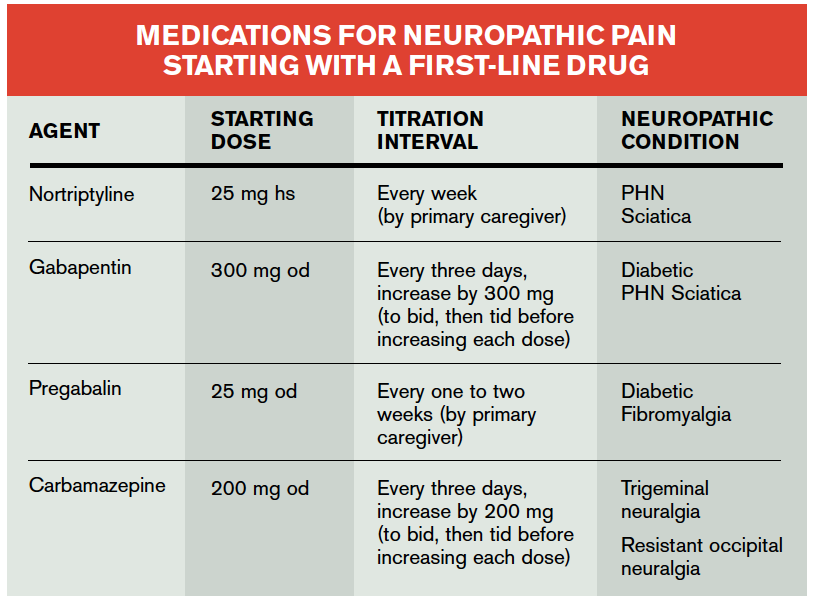Other people find relief with nondrug therapies that can be used alone or in combination with medications. Non-steroidal anti-inflammatory drugs NSAIDs Non-steroidal anti-inflammatory drugs NSAIDs such as aspirin ibuprofen Advil Motrin and naproxen Aleve are sold over the counter and are often the first choice for the treatment of acute pain.
Benefits include decrease in opioid requirements and interrupting the pain cycle Stellate ganglion block for face upper extremity chest wall at level C6-C7.

Non narcotic pain meds. What they are. But it is better then getting addicted to narcotic pain killers. Ultram or Tramadol are non narcotric they are prescribed instead of narcotics they help the pain but I found it difficult to function normally in my daily life I felt drunk n tired the whole time I was taking them.
Used to treat moderate to severe pain. They also are used to manage pain from disease of internal organs. For these reasons consideration of non-opioid strategies for pain management is beneficial.
Autonomic sympathetic blockade to treat ischemic pain and sympathetically maintained neuropathic pain. Nonsteroidal anti-inflammatories of which the painkillers Motrin Advil and Excedrin is a readily available example. There are many non-opioid pain medications that are available over-the-counter or by prescription such as ibuprofen Motrin acetaminophen Tylenol aspirin Bayer and steroids and some patients find that these are all they need.
Tramadol is a non-narcotic medication even though the effects it produces are similar to narcotics. There are a couple more powerful non-narcotic prescription medications you and your doctor can discuss. Certain medications can be very effective for treating condition-specific pain.
Tricyclic antidepressants such as amitriptyline Elavil doxepin Sinequan and nortriptyline Pamelor. After all staying sober is the most important thing. While side effects of these medications tend to be very mild they are often not enough to manage chronic pain.
Non-narcotic Analgesics Non-narcotic analgesics are used to reduce pain from headache cold flu arthritis and many other conditions. These non-narcotic pain meds are non-habit forming options that keep you on the right path with your sobriety. Serotoninnorepinephrine reuptake inhibitors SNRIs such as duloxetine Cymbalta and.
While opioids will certainly continue to have a place in pain management despite their disadvantages the use of non-opioid medication options may limit the amount of opioid necessary or even result in improved pain. Herbal or nutritional pain relievers. Acetaminophen is as effective as NSAIDs for the management of mild-to-moderate OA pain and is the recommended first-line therapy by the American College of Rheumatology ACR.
A lot of pain is caused by swelling Dr. Patients 92 specified concerns about pain medications causing adverse effects and because of this. 36 of patients preferred narcotic pain medications.
This is the primary reason many people still question the classification for Tramadol as being a narcotic drug or not. Several non-NSAID non-narcotic therapies are available for noninflammatory pain. Scientific evidence supporting their effectiveness for pain relief is scant.
Non-narcotic analgesics are medications used to control pain and inflammation. Select drug class All drug classes miscellaneous analgesics 2 narcotic analgesics 36 narcotic analgesic combinations 9 serotonin-norepinephrine reuptake inhibitors 3 Rx. 57 of patients preferred non-narcotic pain medications.
These drugs are prescribed for pain at doses lower than are effective for depression. Gan TJ et al. They normally do not require a prescription and can be purchased over the counter OTC.
According to CESAR methadone is used and associated with the treatment of heroin addicts. Soto says and these drugs help decrease inflammation. The most mild non-narcotic drugs are common over-the-counter OTC medications like Tylenol and Advil.
Drugs used to treat Chronic Pain. Can be prescribed to alleviate moderate to severe pain and can also be used to treat narcotic addiction. They are available at drugstores without a prescription or by prescription when given at higher doses.
Meperidine can be taken by mouth or injection. Thanks to doctors and myself I have been addicted for 10yrs and would do anything to go back and change the choices of medication I was. Prescribed NSAIDs include Meloxicam Mobic Celecoxib Celebrex and others.
Naprosyn is another example packaged commercially as Aleve. There are also some methods for managing pain that doesnt use any substance but does require that you put in some personal effort. Current Medical Research and Opinion.
The following list of medications are in some way related to or used in the treatment of this condition. Some types of these medications can be given during surgery to reduce post-surgical pain and lessen the need for narcotics. Examples include triptans for migraine headaches and gabapentin Neurontin or pregabalin Lyrica for nerve pain.


